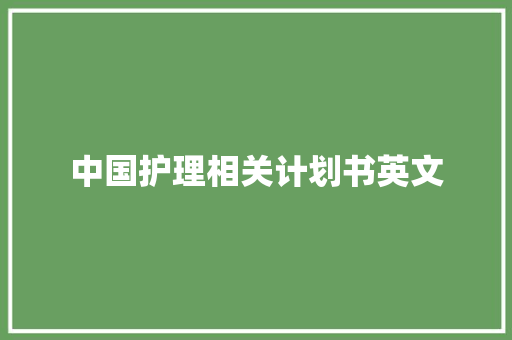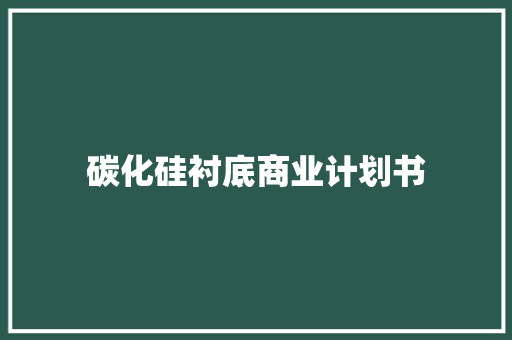Introduction
nursing, as a critical component of healthcare, plays a vital role in promoting health and preventing diseases. In recent years, China has made significant progress in the development of nursing-related plans to enhance the quality of nursing care and improve patients' outcomes. This article aims to provide a comprehensive review of the implementation of nursing-related plans in China, highlighting the key aspects and strategies adopted by the government and healthcare institutions.

I. Background of Nursing-related Plans in China
The implementation of nursing-related plans in China has been driven by the growing demand for high-quality nursing care and the increasing recognition of the importance of nursing in healthcare. According to the World Health Organization (WHO), there is a global shortage of 9 million nurses, and China is no exception. To address this issue, the Chinese government has formulated various policies and plans to promote nursing education, training, and practice.
II. Key Aspects of Nursing-related Plans
A. Nursing Education and Training
The first step in improving the quality of nursing care is to ensure that nurses receive adequate education and training. In China, nursing education has been elevated to the undergraduate level, and the government has allocated substantial funds to build modern nursing schools and improve the quality of nursing education. Additionally, continuous professional development programs have been established to keep nurses updated with the latest advancements in the field.
B. Nurse Recruitment and Retention
To meet the growing demand for nursing care, the Chinese government has implemented various recruitment and retention policies. These policies include offering competitive salaries, providing housing subsidies, and offering opportunities for career advancement. Furthermore, the government has established a national nursing talent reserve to ensure the availability of qualified nurses in rural and underdeveloped areas.
C. Nurse Workforce Management
Effective nurse workforce management is essential for ensuring the optimal allocation and utilization of nursing resources. In China, healthcare institutions have been encouraged to adopt advanced workforce management systems to enhance the efficiency and effectiveness of nursing care. These systems facilitate the tracking of nurse workload, skill levels, and competencies, enabling institutions to make informed decisions regarding staffing and training needs.
D. Quality of Nursing Care
The quality of nursing care is a top priority in China. To ensure the delivery of high-quality nursing care, the government has established strict standards and guidelines for nursing practice. These standards cover various aspects, including patient safety, pain management, and patient-centered care. Moreover, the government has implemented a continuous quality improvement (CQI) program to monitor and improve the quality of nursing care provided in healthcare institutions.
III. Challenges and Solutions
Despite the significant progress made in the implementation of nursing-related plans, challenges remain. One of the main challenges is the aging population, which is increasing the demand for nursing care. To address this challenge, the Chinese government has been working to expand the capacity of nursing schools and promote interprofessional collaboration among healthcare providers.
Another challenge is the low status of nursing in society, which affects the recruitment and retention of nurses. To tackle this issue, the government has been promoting the recognition of nursing as a noble profession and encouraging the public to respect and support nurses.
IV. Conclusion
The implementation of nursing-related plans in China has been instrumental in improving the quality of nursing care and addressing the growing demand for healthcare services. By focusing on nursing education, recruitment, workforce management, and the quality of nursing care, the Chinese government has taken significant steps towards enhancing the overall health of its citizens. As the healthcare landscape continues to evolve, it is essential for the government and healthcare institutions to remain committed to the implementation and improvement of nursing-related plans to ensure the well-being of the population.









